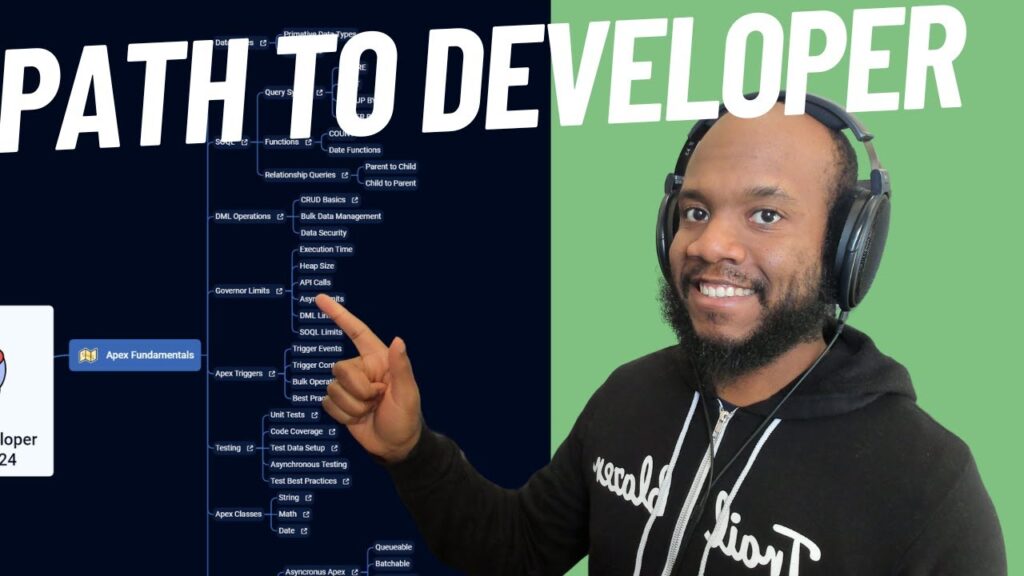Salesforce Developer Roadmap (In 2024)
Hey there, fellow developers and coding enthusiasts! If you're just starting your journey in Salesforce development, you might feel a bit overwhelmed by the sheer amount of concepts and technologies to learn. Trust me, I've been there! That's why I've created a Salesforce developer roadmap specifically designed for those who are just beginning.
Programming Fundamentals
Before we dive into the Salesforce-specific concepts, we need to lay a solid foundation in programming fundamentals. These are the building blocks that you'll need to write code in any language, including Apex, which is the primary language used in Salesforce development.
"Programming fundamentals are the building blocks that you need to write code in any language." - Walters 954
Here are the key areas you should focus on:
Variables: Learn how to declare, assign, and manipulate variables, which are used to store data in your code.
Flow Control: Master if statements, loops, and other control structures that allow you to make decisions and execute code conditionally.
Collections: Understand how to work with arrays, lists, maps, and other data structures that hold multiple values.
Classes, Objects, and Functions: Grasp the concepts of object-oriented programming (OOP), including classes, objects, and functions.
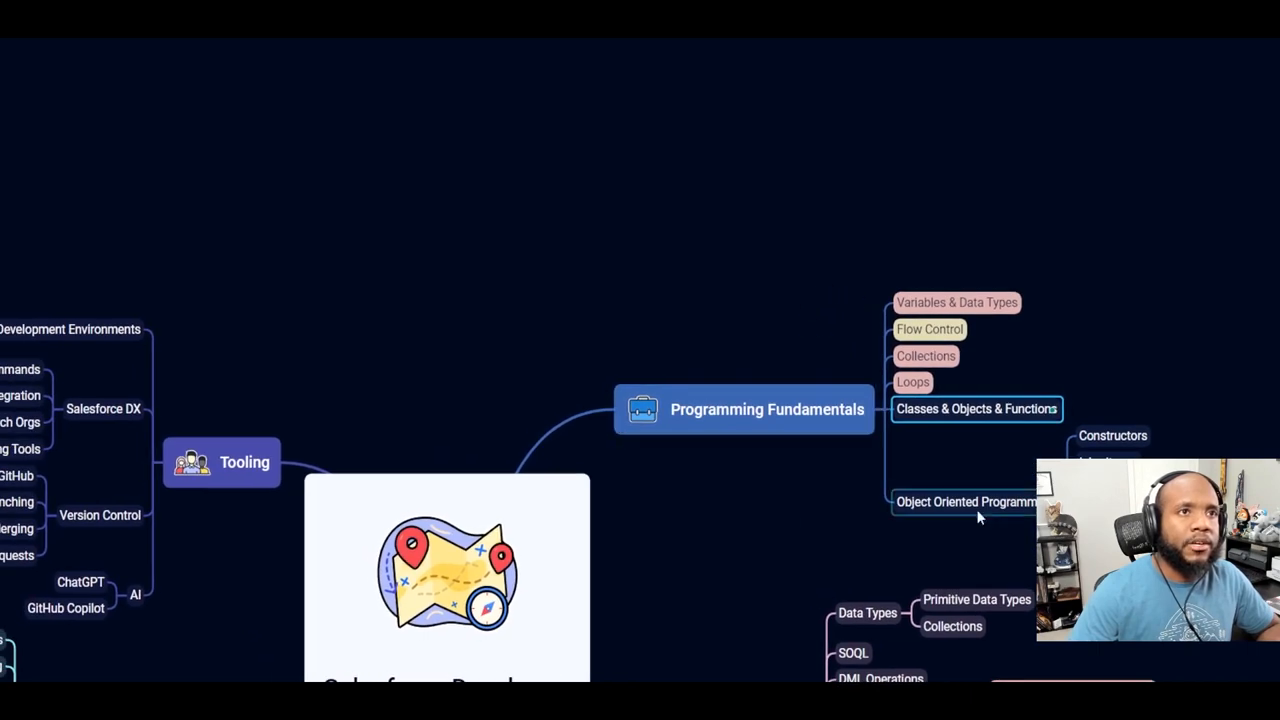
While these concepts may seem daunting at first, they are essential for any programmer. I recommend learning them using resources like CS50 (a Harvard computer science course), Codecademy, or my own program, Cloud Code Academy, where we teach Salesforce development alongside these fundamentals.
Tooling
Now that you've got the programming basics down, it's time to dive into the tools you'll need as a Salesforce developer. First up is the Integrated Development Environment (IDE). While you can use the Salesforce Developer Console for basic tasks, it's highly recommended to start learning Visual Studio Code (VS Code) with the Salesforce Extension Pack.
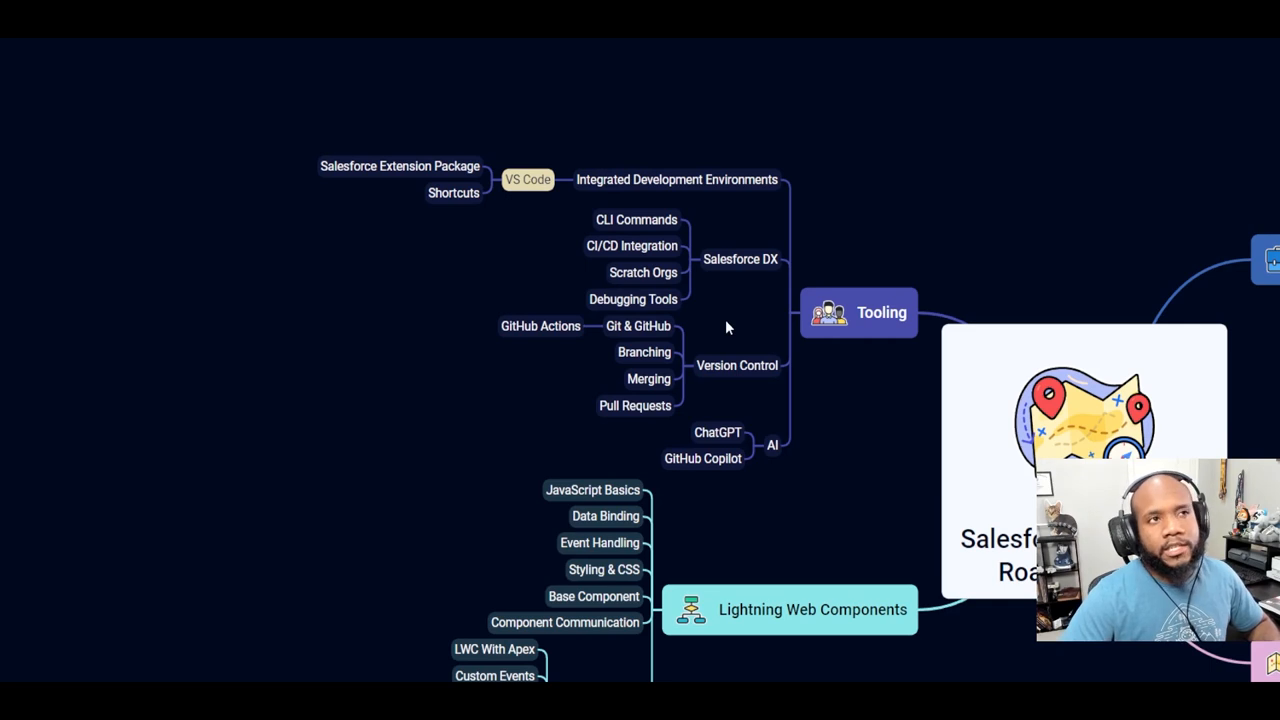
Here are some key tooling concepts to explore:
Visual Studio Code Shortcuts: Familiarize yourself with the shortcuts and features of VS Code to boost your productivity.
Scratch Orgs: Learn how to create and work with scratch orgs, which are temporary Salesforce environments for development and testing.
Version Control: Get acquainted with Git and version control systems, which are essential for managing your code and collaborating with others.
GitHub Actions: Explore automation tools like GitHub Actions for streamline your development workflows.
AI Tools: While not a focus for beginners, tools like ChatGPT and GitHub Copilot can be helpful for debugging, best practices, and guidance once you've mastered the fundamentals.
Don't forget to consider finding a mentor! While Salesforce's mentorship platforms are no longer active, the Trailblazer Mentorship Platform is a great place to connect with experienced Salesforce developers who can guide you on your journey.
Apex Fundamentals
With the programming foundations and tooling in place, it's time to dive into Apex, the primary programming language used in Salesforce development. In this section, you'll apply your knowledge of programming concepts to the Salesforce ecosystem.
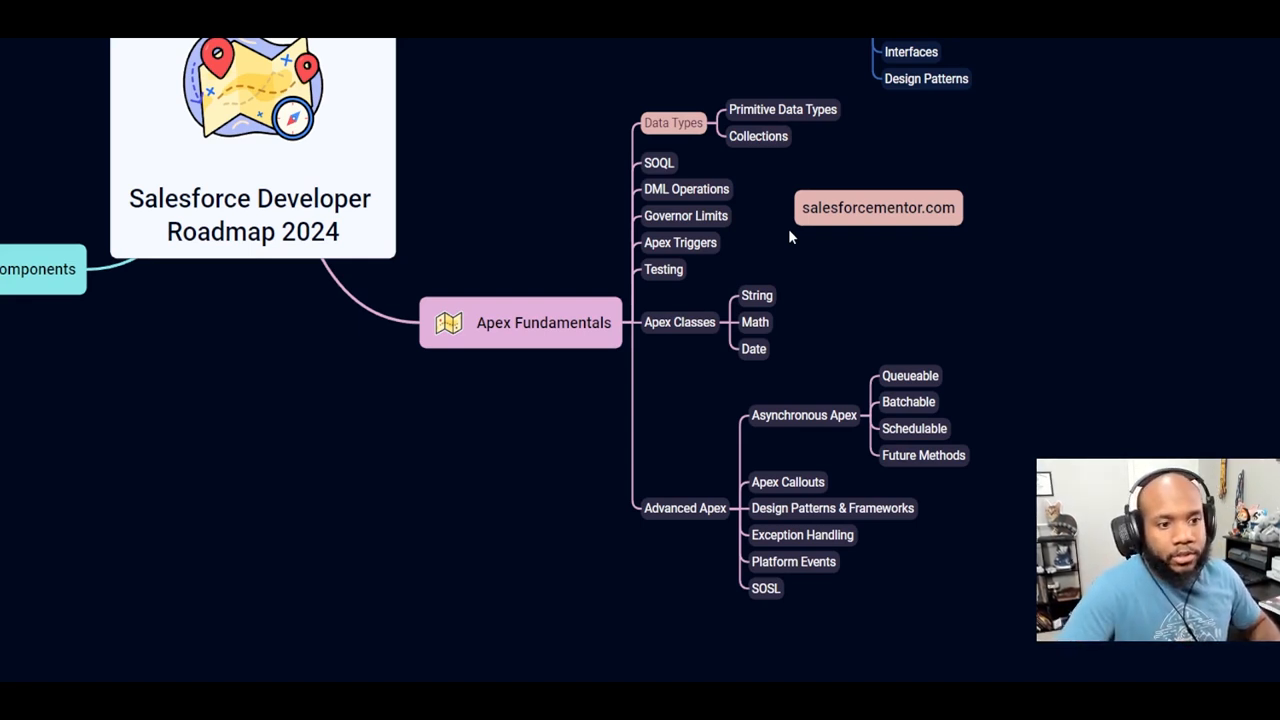
Here are some key Apex concepts to master:
Data Types: Understand the different data types in Apex, such as primitives, objects, and collections, and how to work with them effectively.
SOQL (Salesforce Object Query Language): Learn how to query data from the Salesforce database using SOQL, which is similar to SQL but tailored for the Salesforce platform.
DML (Data Manipulation Language): Explore how to perform CRUD (Create, Read, Update, Delete) operations on Salesforce records using Apex DML statements.
Governor Limits: Familiarize yourself with the governor limits imposed by Salesforce to prevent code from consuming too many resources in the multi-tenant environment.
Triggers: Understand how to write Apex triggers that execute code automatically when specific events (like record creation or updates) occur in Salesforce.
Testing: Learn how to write test classes and achieve at least 75% code coverage, which is required for deploying Apex code to production environments.
As you progress through these concepts, leverage resources like Trailhead, Apex Sandbox, and Cloud Code Academy to get hands-on practice and reinforce your learning.
Lightning Web Components
Salesforce development isn't just about the back-end; you'll also need to create custom user interfaces using Lightning Web Components (LWCs). Think of LWCs as the front-end counterpart to your Apex code, allowing you to build modern and responsive UI components.
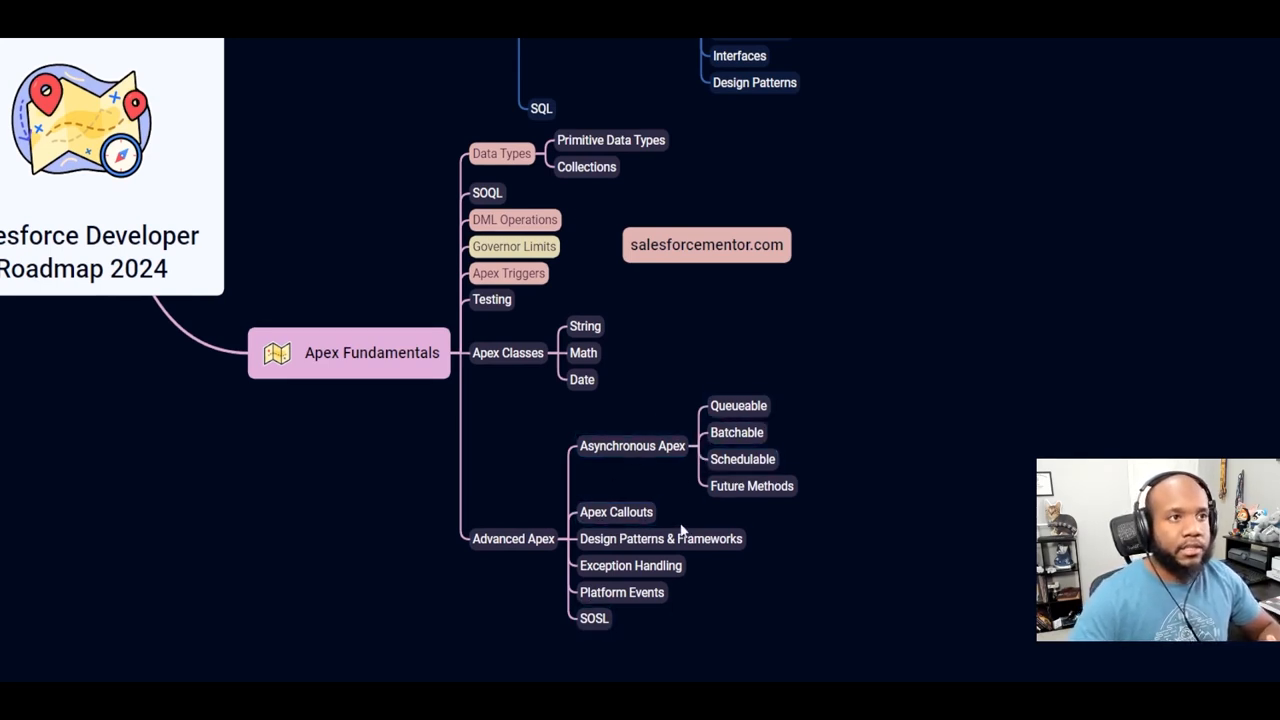
Here are some key LWC concepts to explore:
JavaScript Fundamentals: While you've already learned programming fundamentals, you'll need to understand JavaScript specifically, as LWCs are built using this language.
Data Binding: Learn how to bind data from Apex to your LWC components, enabling seamless communication between the front-end and back-end.
Event Handling: Understand how to handle user interactions and events within your LWC components.
Styling with CSS and SLDS: Explore how to style your LWC components using CSS and the Salesforce Lightning Design System (SLDS) to ensure a consistent look and feel.
Component Library: Familiarize yourself with the Salesforce Component Library, which provides pre-built components you can use in your LWC applications.
Advanced Topics: Once you've mastered the basics, dive into more advanced LWC topics like custom events, performance optimization, and best practices.
Trailhead and hands-on practice are key for learning LWCs effectively. Additionally, my LWC course on salesforcementor.com is a comprehensive resource that covers both the fundamentals and advanced topics.
Wrapping Up
Phew, that's a lot of ground to cover! But don't worry; by focusing on this Salesforce developer roadmap, you'll be well on your way to becoming a proficient Salesforce developer. Remember, this roadmap is designed to help you prioritize the most important concepts and avoid getting overwhelmed by the vast array of resources out there.
"If you focus on these items, you'll get really good at Salesforce development and probably be ready for a junior-level job." - Walters 954
As you progress through this roadmap, don't hesitate to reach out to the Salesforce community for support, guidance, and feedback. Together, we can navigate this exciting journey and unlock the doors to a rewarding career in Salesforce development.
And remember, mastering the concepts in this roadmap is just the first step. To truly stand out in the job market, consider pursuing Salesforce certifications, which can open doors and demonstrate your expertise.
Happy coding, and I'll see you in the Salesforce ecosystem!
